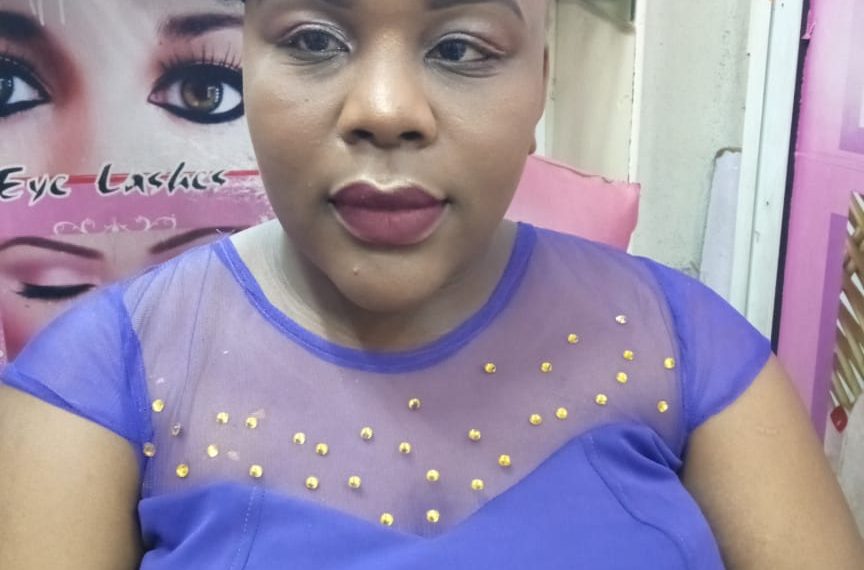The Covid-19 pandemic has come as an extra ordeal for people living with special needs. Visually impaired persons have taken a big hit from Covid-19 and its containment measures implemented by government as our writer found out.
By Stephen Macharia
About ten weeks after Kenya registered the first COVID-19 case, Celine Akinyi, 31, a visually impaired pastry cook and cake vendor in Nairobi, remains pensive about her future and that of her business.
For Akinyi, who also lives with cerebral palsy, incurable conditions that impair body muscle coordination resulting to physical disability, the COVID-19 pandemic is a double ordeal: her business has closed due to dwindled sales and she cannot travel outside her home in South C.
Her fear: “I cannot keep social distance and avoid touching surfaces when I am outside the house.”
Akinyi’s trepidation, albeit pithily expressed, characterizes a set of extra ordeals people living with special needs have to endure because of COVID-19.
According to a report by the Kenya Society for the Blind (KSB), Kenya has over 331,000 persons documented as visually impaired and a further 650,000 with low vision.
The stay home orders and social distancing rules implemented by government have negatively affected daily life particularly for people with special needs.
“I rely on well-wishers to cross roads and board matatus. That puts me at a higher risk of contracting corona virus disease. I cannot observe social distancing as a preventive measure,” she explains.
Her visual impairment, combined with cerebral palsy, means Akinyi lives with two disabilities; blindness and impaired or involuntary body movements.
She finds it “very hard to avoid touching surfaces” after stepping out from the house.
She must clinch on surfaces to find body balance when performing ordinarily simple tasks such as going up or down staircases and boarding vehicles.
Today, Akinyi now lives with multiple concerns over Covid-19; contracting the virus from volunteers aiding her cross roads; touching possible virus-laden surfaces such staircase rails; stigma associated with disability as well as uncertainty over her business future.
She has reasonable ground for her trepidation: seven out of 10 people who have tested positive for Covid-19 in Kenya show no symptoms for the disease according to the Ministry of Health (MoH).
Seeking help from volunteers in town, or having a caregiver accompanying her most of the time means foregoing social distancing rule, a risk she is unwilling to take.
She opts “to stay indoors and rely on a relative for upkeep” at the expense of her business.
Her mother, Petronella Akinyi, a lecturer at Egerton University, acts as the caregiver at home but not without concerns.
“Mum has been at home since the government closed all learning institutions in Kenya. We do not know what the future holds for us,” she adds.
Akinyi, Petronella’s only child, has lived with blindness and cerebral palsy since birth. She however beat the odds and graduated from Valentine School of Cakes where she learnt the art of baking. In a bid to pursue her dream in entrepreneurship, she founded Celiz Limited. The company now is now at risk of closure due to the pandemic.
Before COVID-19, her business was “fine and growing”. Customers placed orders via phone and she made deliveries, mostly in the central business district (CBD).
But not anymore. Almost all her clients work in organizations that have since closed or furloughed workers.
“Many of my customers say they do not have money to place orders,” she tells Health Business. “I have no idea when and how to resume business. I will have to re-think delivery method.”
Making matters worse, some of her clients, especially those who working from home or lost jobs, are now learning baking tips on YouTube. “They may never place an order with me again,” she says.
Furthermore, she is not able to meet friends and support group members for psychosocial support during this period. However, Akinyi finds solace in broadcast and internet media outlets to get information on the Covid-19 crisis in the world.
“At the supermarkets, I rely on sense of touch to identify the items I need to buy. Nowadays, supermarkets warn people against touching items they do not finally buy. It becomes very difficult,” she says. Without friends to accompany her, Akinyi’s mother does “almost everything in the house”.
Basic daily errands such as buying vegetables have become a near “terrifying” affair for the visually impaired.
“Seeking help from random people on the road, supermarket or even at the matatu termini is akin to flirting with Covid-19,” Akinyi opines.
However, disruptions to daily life due to Covid-19 provide unseen benefits for a section of people living with visual impairments.
Eric Ngondi, a volunteer adaptive computing teacher at KSB, says working from home is a “positive aspect for people living with disabilities.” Adaptive computing refers to services and technologies, in software and hardware that make computing accessible to people living with disabilities.
His take: “A lot of work places are unfavourable to visually impaired; going up and down staircases and general office setting remain overtly nauseating for visually impaired,” he says.
Ngondi, who also works as a customer relations officer at the National Environment Management Authority (NEMA), however adds working from home only favours people in formal employment.
While Covid-19 spreads in Kenya, consequently disrupting income revenues for thousands of people, persons living with disability have taken the biggest hit.
According to Macbeth Kithuku, a visually impaired lecturer in Nairobi, a majority of people living with special needs, including blindness, are currently at the mercy of their families and employers.
He urged employers to spare people with disabilities from huge salary cuts observing “such persons have limited options in finding alternative income sources.”
“Disability is not inability but the prevailing social cultural environment curtails our chances in finding side jobs and investments,” Kithuku asserts.
He warns of a possible spike in lifestyle diseases among people living with disability noting visually impaired persons have become inactive due to stay home orders.
“Most of us spend the whole day seated in the house, unable to take a walk or jog in the neighbourhoods,” concludes Kithuku.
The writer’s effort to get comments from Kenya Society for the Blind (KSB) were unfruitful. The Society, despite acknowledging receiving emails from this writer two weeks before publication date of this story, did not respond or grant the writer an interview.
This article was made possible with a Health Reporting Grant funded by the Media Council of Kenya.














